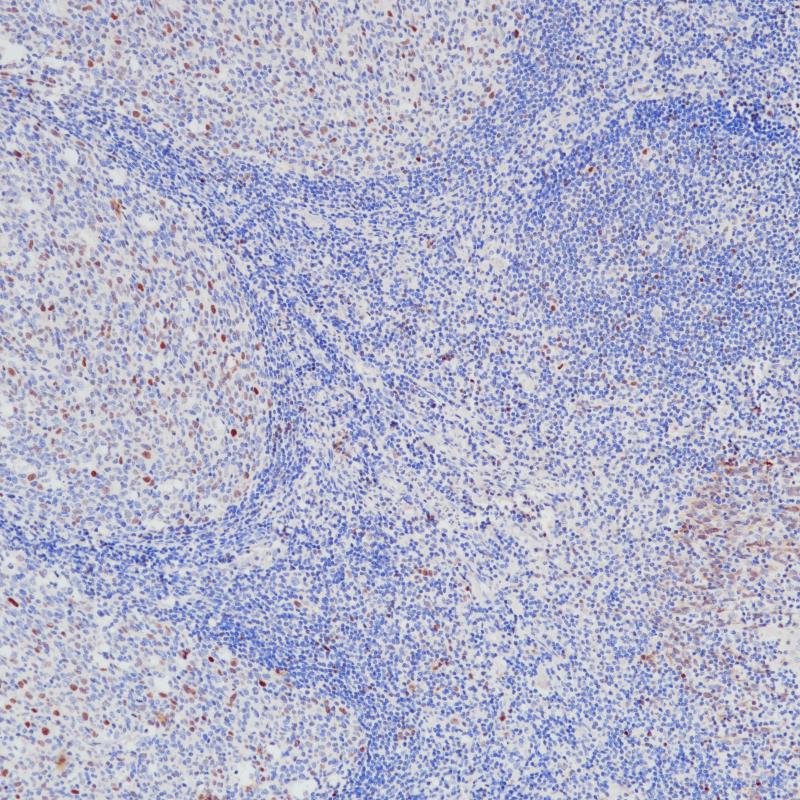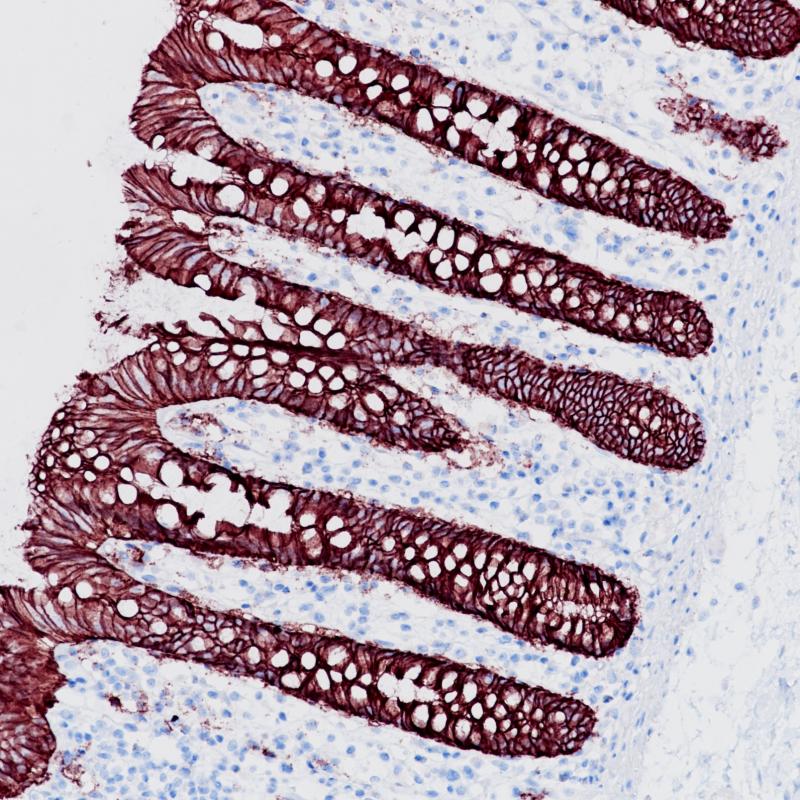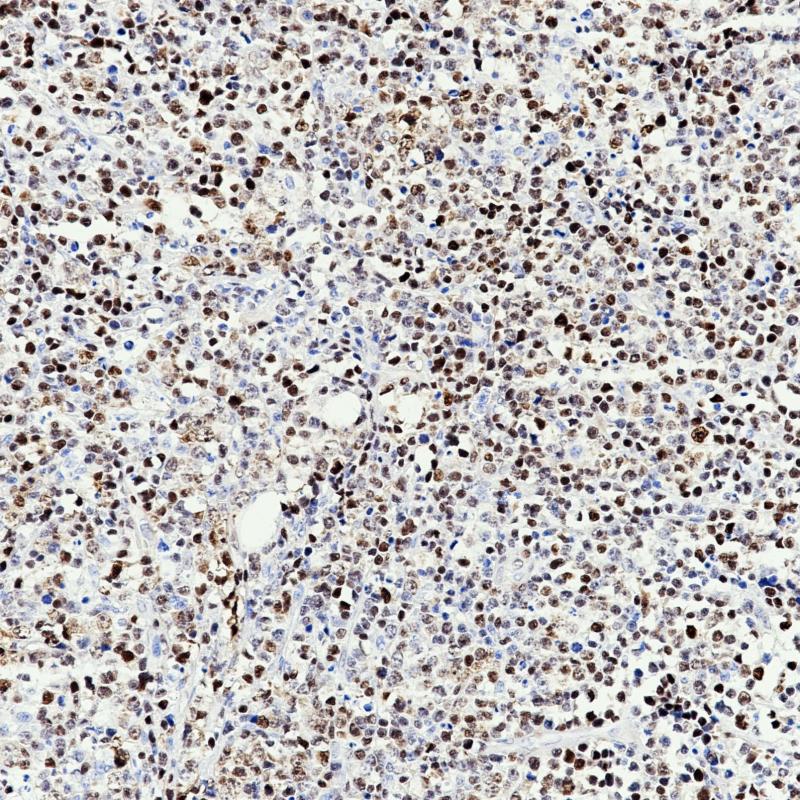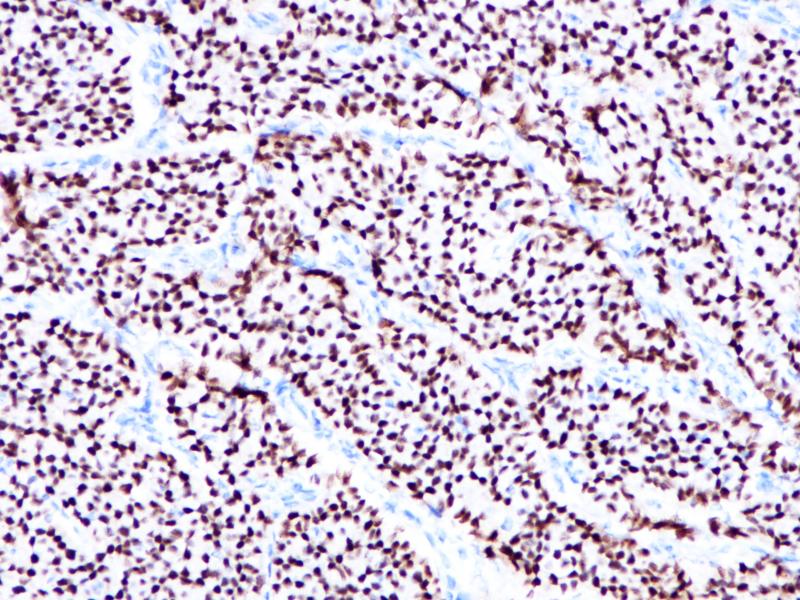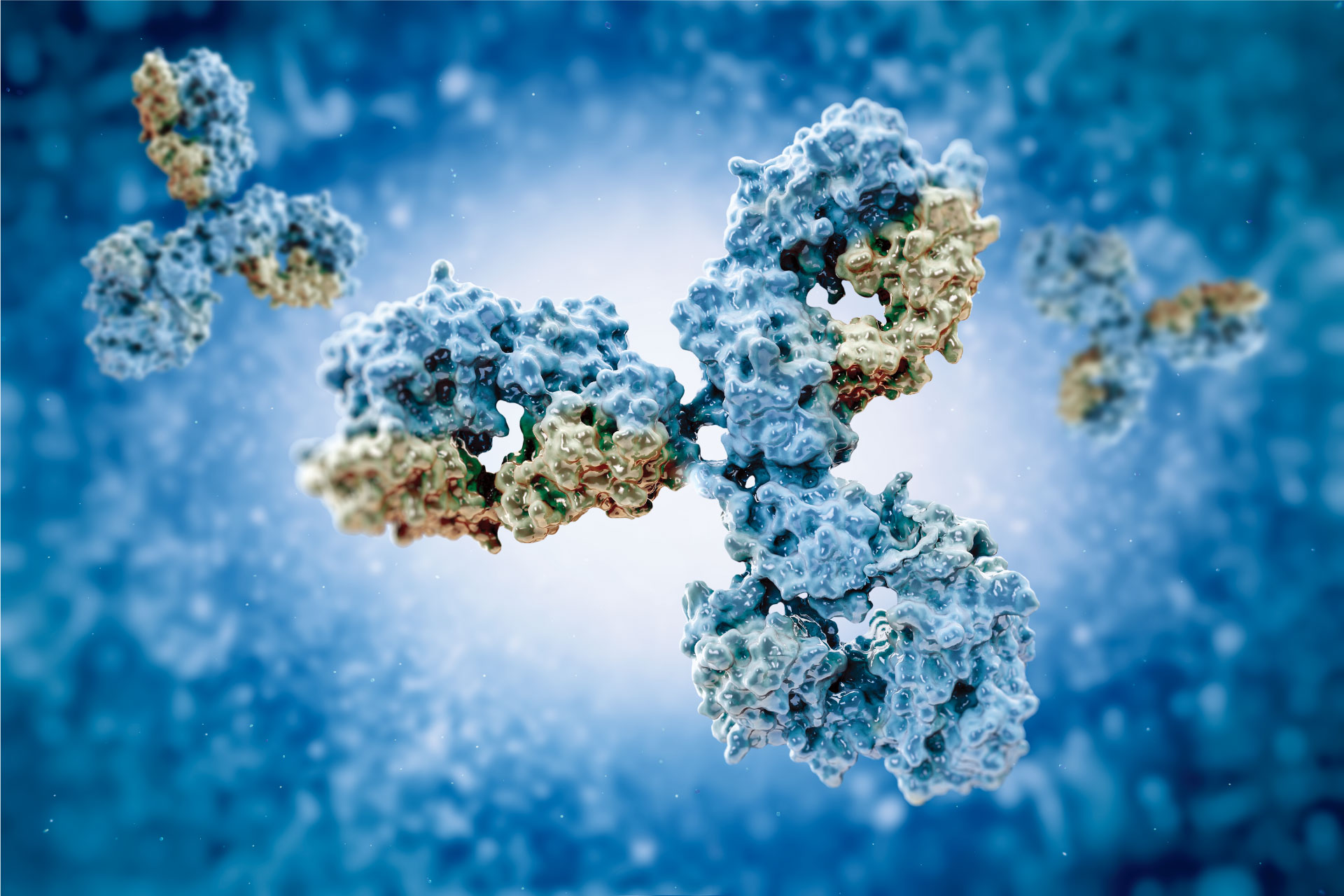
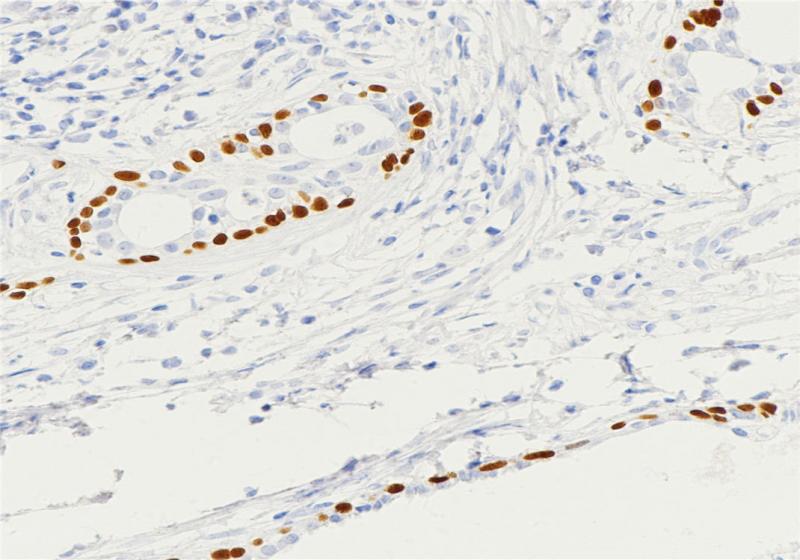
Prostate
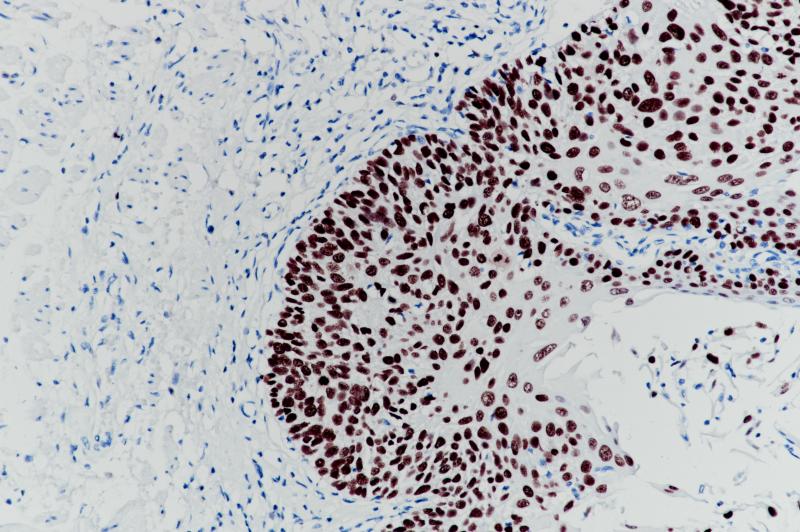
Esophagus
p63 Recombinant Rabbit Monoclonal Antibody
p63 is a transcription factor related to the tumor suppressor gene p53 and play a critical role in the development of stratified epithelia by maintaining basal cell regenerative capacity and perhaps by playing a role in mediating ectodermal-mesenchymal interactions.
In normal tissues, p63 expression is presented in the basal cells of stratified epithelia such as skin, ectocervix, esophagus, urothelium, and bronchi. p63 is also found in basal cells of glandular tissue such as prostate and breast and in lymphoid tissue. In tumor tissues, the p63 gene is amplified and the protein is overexpressed in primary lung and head and neck squamous cell carcinomas. Squamous cell carcinomas of the larynx, esophagus, skin, and cervix also express p63. p63 expression has also been documented in basal cell carcinomas of skin. However, some studies also show that p63 expressed in a subset of adenocarcinomas and large cell carcinomas of lung.In diagnostic pathology practice, p63 has been studied as a marker of basal cells to help in the diagnosis of ductal carcinoma in situ of the breast versus invasive carcinoma in fine-needle aspirates. Similarly, p63 has been tested as a marker to identify basal cells in the diagnostic work-up for prostatic cancer. Recently, some studies have suggested that p63 in combination with other markers may be used to help in differentiating squamous cell carcinomas from other tumor types in cases difficult to diagnose histologically.
In normal tissues, p63 expression is presented in the basal cells of stratified epithelia such as skin, ectocervix, esophagus, urothelium, and bronchi. p63 is also found in basal cells of glandular tissue such as prostate and breast and in lymphoid tissue. In tumor tissues, the p63 gene is amplified and the protein is overexpressed in primary lung and head and neck squamous cell carcinomas. Squamous cell carcinomas of the larynx, esophagus, skin, and cervix also express p63. p63 expression has also been documented in basal cell carcinomas of skin. However, some studies also show that p63 expressed in a subset of adenocarcinomas and large cell carcinomas of lung.In diagnostic pathology practice, p63 has been studied as a marker of basal cells to help in the diagnosis of ductal carcinoma in situ of the breast versus invasive carcinoma in fine-needle aspirates. Similarly, p63 has been tested as a marker to identify basal cells in the diagnostic work-up for prostatic cancer. Recently, some studies have suggested that p63 in combination with other markers may be used to help in differentiating squamous cell carcinomas from other tumor types in cases difficult to diagnose histologically.
Specifications
- Catalog No.
- BX50033
- Clone No.
- BP6038
- Application
- IHC-P
- Subcellular location
- Nucleus
- Control
- Lung
- Recommended method
- HIER
- Volume
- 100μl/vial, 1ml/vial
- Dilution
- 1:100-1:200
- Immunogen
- Synthetic peptide corresponding to p63 residues within aa580-680 of p63 was used as an immunogen.
Reference
1.Au NH, et.al, Appl Immunohistochem Mol Morphol. 2004 Sep;12(3):240-7.
2.Lewis JS, et.al, Mod Pathol. 2005 Nov;18(11):1471-81.
Support Documents
Order
- E-mail : sales@biolynx.cn
